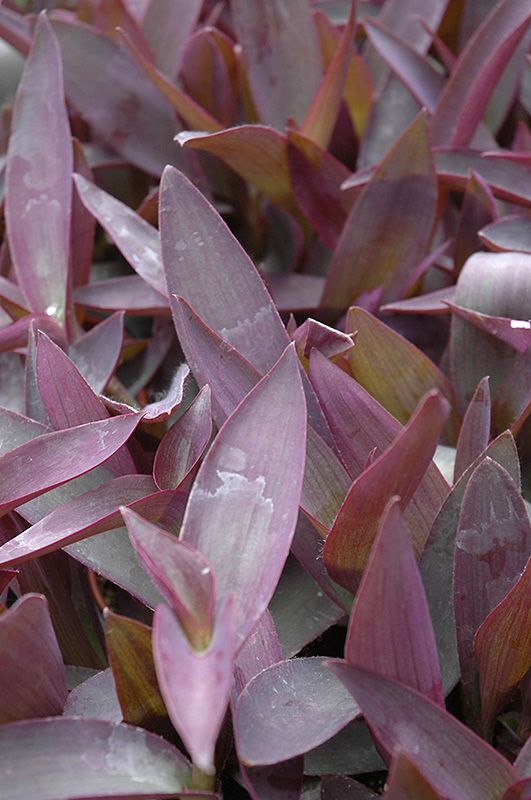Purple Heart
Setcreasea pallida 'Purple Heart'
Height: 14 inches
Spread: 5 feet
Sunlight:
![]()
![]()
Hardiness Zone: (annual)
Other Names: syn. Tradescantia pallida Purpurea
Description:
This trailing perennial is grown for its foliage; lovely leaves emerge burgundy-red and mature to purple; low maintenance, and excellent for containers or massed as groundcover
Ornamental Features
Purple Heart's attractive pointy leaves emerge burgundy in spring, turning purple in colour the rest of the year on a plant with a spreading habit of growth.
Landscape Attributes
Purple Heart is an herbaceous annual with a ground-hugging habit of growth. Its relatively fine texture sets it apart from other garden plants with less refined foliage.
This is a relatively low maintenance plant, and is best cleaned up in early spring before it resumes active growth for the season. Deer don't particularly care for this plant and will usually leave it alone in favor of tastier treats. It has no significant negative characteristics.
Purple Heart is recommended for the following landscape applications;
- Mass Planting
- Border Edging
- General Garden Use
- Naturalizing And Woodland Gardens
Planting & Growing
Purple Heart will grow to be about 14 inches tall at maturity, with a spread of 5 feet. Its foliage tends to remain dense right to the ground, not requiring facer plants in front. Although it's not a true annual, this fast-growing plant can be expected to behave as an annual in our climate if left outdoors over the winter, usually needing replacement the following year. As such, gardeners should take into consideration that it will perform differently than it would in its native habitat. As this plant tends to go dormant in summer, it is best interplanted with late-season bloomers to hide the dying foliage.
This plant does best in partial shade to shade. It prefers to grow in average to moist conditions, and shouldn't be allowed to dry out. It is not particular as to soil type or pH. It is highly tolerant of urban pollution and will even thrive in inner city environments. Consider applying a thick mulch around the root zone in winter to protect it in exposed locations or colder microclimates. This is a selected variety of a species not originally from North America. It can be propagated by cuttings; however, as a cultivated variety, be aware that it may be subject to certain restrictions or prohibitions on propagation.

